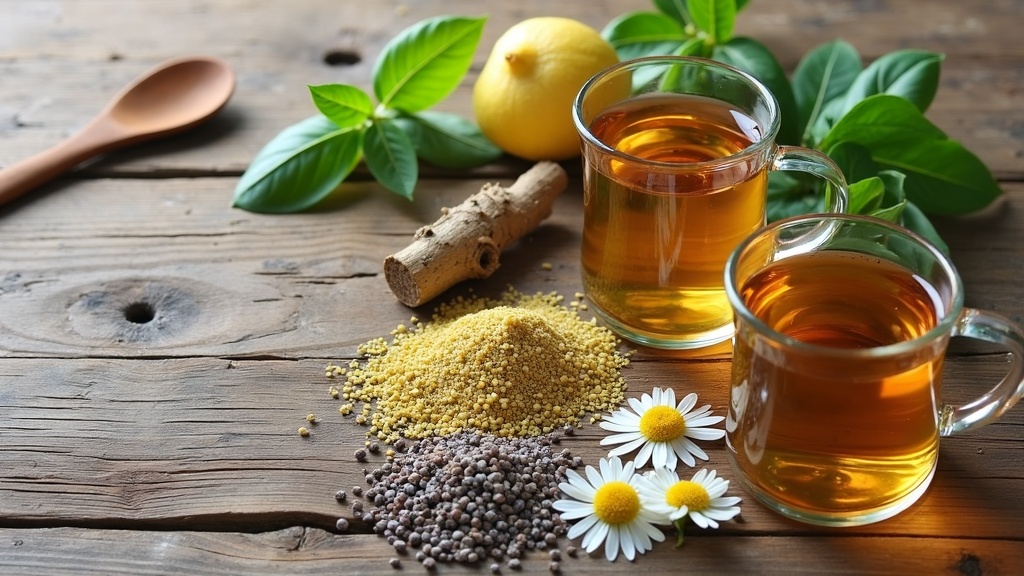
If you’ve found yourself overwhelmed by daily pressures, racing thoughts, or trouble sleeping, you’re not alone. Stress is everywhere, and it can really wear you down if you don’t find ways to manage it. I’ve been there myself, feeling like I just couldn’t turn my brain off at night or focus during the day.
Over time, I started turning to herbal remedies and found that they brought a new level of calm that I wasn’t getting from just deep breathing. Herbs work with the body in a gentle, steady way, and they’re pretty easy to fit into a busy routine. Here’s how I learned to lean on some of nature’s best stress busters.
Why Stress Happens, and How Herbs Help
When things get stressful, your body churns out hormones like cortisol and adrenaline. In small bursts, this is totally normal. But nonstop stress can turn into exhaustion, low mood, headaches, or even trouble with your immune system. A lot of people turn to quick fixes, but I find herbal remedies offer softer, longer-lasting relief.
- Herbs like adaptogens help your body handle daily stress.
- Calming herbs soothe nerves and steady your mood.
- Some herbs gently support sleep or boost energy, depending on what you need most.
I started with a few well known options and noticed improvements in how I felt after just a few weeks.
My Favorite Herbs for Stress Relief
There are lots of herbs people turn to for relief, but a handful of them have really stood out for me and others I’ve talked to. Here are the top picks, along with some tips on how to use each one.
- Ashwagandha
Type: Adaptogen
What it does: Balances cortisol, lifts mood, supports restful sleep.
How I use it: Capsule form or powder added to a smoothie (300–600 mg daily is pretty standard). Stick with it daily for a few weeks to feel the difference. - Rhodiola Rosea
Type: Adaptogen
What it does: Brings steady energy, sharpens focus, cuts down stress related fatigue.
How I use it: Standardized extract, usually taken early in the day. If I take it too late, I find I’m a bit too wired at bedtime. - Holy Basil (Tulsi)
Type: Adaptogen, antioxidant
What it does: Eases anxious feelings, smooths out mood swings, supports the immune system.
How I use it: Makes a tasty tea, and I like a cup during the afternoon slump. Also comes in tincture or capsule forms. - Lemon Balm
Type: Calming nervine
What it does: Relaxes the mind, eases anxiety, helps me wind down.
How I use it: Brewed as a tea or added to a nighttime supplement blend. Perfect right before bed or whenever I need to relax. - Chamomile
Type: Gentle sedative
What it does: Soothes nerves, helps settle an upset stomach, promotes better sleep.
How I use it: A classic cup of chamomile tea in the evening is hard to beat. I often suggest this for friends who struggle to turn their minds off at bedtime. - Passionflower
Type: Mild tranquilizer
What it does: Eases racing thoughts, supports deep sleep (especially when I wake up feeling wired early in the morning).
How I use it: Tincture or capsules, sometimes combined with other calming herbs.
In addition, some folks find comfort in other traditional relaxing teas, like lavender or valerian, but the six above are my consistent standbys for stress relief and better sleep. If you want to check out new flavors or combinations, mixing herbs by taste can be a fun way to make a calming evening ritual your own.
Combining Herbal Remedies for Better Stress Relief
Mixing and matching herbs, sometimes called “herbal stacking,” has given me much better results than just using one. Here’s a combo that works for a lot of people (myself included):
- Morning: Ashwagandha and Rhodiola (stamina and resilience)
- Midday: Holy Basil tea (keeps my head clear and my mood lifted)
- Evening: Lemon Balm and Chamomile, sometimes with Passionflower (puts my body and mind in the right mode for sleep)
Blending herbs means you get both fast-acting and long-lasting benefits. It also keeps things interesting, so you can tweak your favorites to suit what you need most that day.
How to Start With Herbal Stress Relief (Without Making It Complicated)
- Start with one herb at a time to see how your body reacts. Take note of any changes in mood, sleep, or energy levels so you can track what actually helps you.
- Pace yourself. Herbs often take a couple weeks to really take hold, and a little patience pays off.
- Stick to quality. I look for brands that show third party testing or have trustworthy reputations. Check ingredient lists to avoid cheap fillers.
- Pair herbs with other healthy habits, like getting enough rest, eating well, and staying active. The herbs definitely work best when you’re taking care of yourself in other ways.
- Be careful about mixing herbs with prescription meds. If you’re dealing with things like blood pressure or thyroid issues, check with your healthcare provider to be safe.
What to Know About Using Herbs Safely
Herbal remedies are generally safe, especially when you stick to recommended amounts. That said, a few situations call for extra caution:
- If you’re pregnant, breastfeeding, or have a medical condition, talk to your doctor before you start anything new.
- Some herbs can interact with prescription medications, so always double check.
- Herbs like ashwagandha and rhodiola work best when you take them every day for a while. Don’t expect an instant fix from a single dose.
As with anything new, your body will let you know if something isn’t working for you. I always start slow and listen to those signals. It’s also smart to keep a health journal, just to spot trends and to share any changes with your doctor if needed.
What I’ve Learned From Using Herbal Remedies for Stress
Adding herbs into my wellness routine has gone a long way in helping me feel more at ease, even when life gets hectic. The relief comes gently and steadily, not with the dramatic ups and downs I sometimes got from other stress fixes. Over time, I’ve come to rely on these remedies as steady partners, not just band aids.
- Instead of powering through stress and hoping for the best, I give my body the tools it needs to bounce back.
- I don’t have to worry about dependency or harsh side effects that can come with heavier options.
- Herbs help me tune in to what my body actually needs and build healthier habits overall.
If you’re curious about where to start, pick one herb that sounds like a good fit and try it for a couple of weeks. Journal how you feel—energy, sleep, focus, mood. You may be surprised by how much calmer and more energized you feel, even when life doesn’t slow down. These gentle helpers can make a real difference if you treat them as part of a larger self care plan.
Consistent use and a bit of patience go a long way. Nature’s stress support system is right there for you, sometimes hot in a mug, sometimes tucked inside a handy capsule. When you check out what herbs can do, you’re giving yourself another tool for staying levelheaded, no matter what life throws your way.
